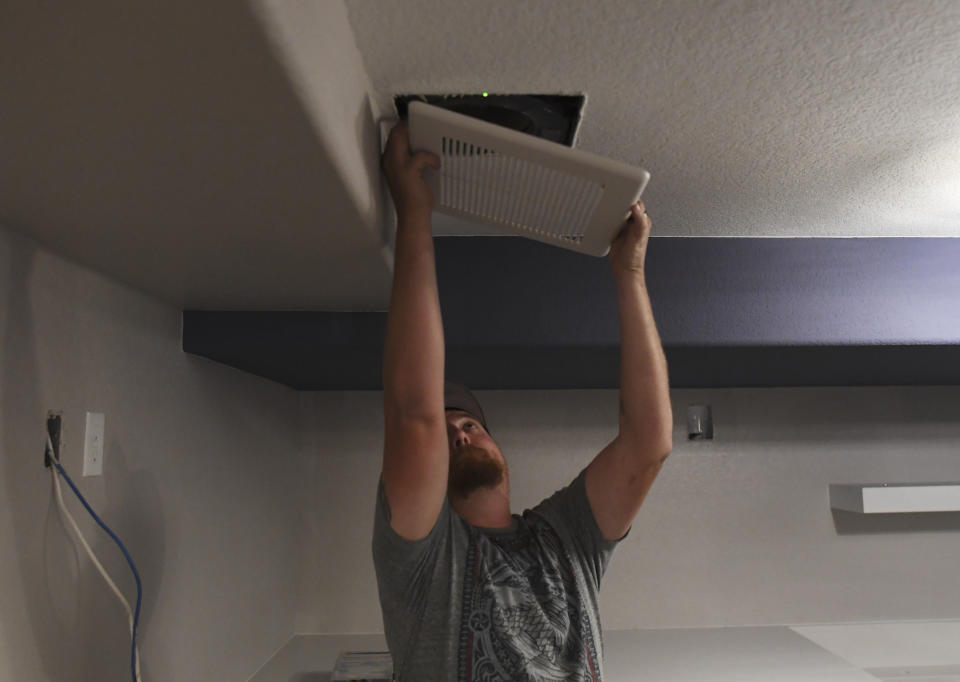Why you're not 'throwing your money away' when you rent
Kevin Mahoney is a certified financial planner and founder of Washington, D.C.-based Illumint, which offers fee-only financial planning specifically for young couples and families.
The 400 block of K Street NW in Washington, D.C., enables certain individuals to live their best life without ever really leaving home.
The street primarily consists of newly-constructed, high-rise buildings. At street level, you can access two boutique fitness studios, two popular cafes, multiple restaurants from award-winning chefs, a grocery store, and a nail salon.
During the week, you can commute from one of two nearby Metro stations or walk directly to your office in Chinatown or Downtown. At night and on weekends, Capital One Arena, the Shaw neighborhood bar scene, and even the National Mall are also a short stroll away.
One thing you probably can’t do, though, is afford to own a property here.
The nearest for-sale homes start around $500,000 for less than 1,000 square feet. That’s why you, along with many young singles and child-free couples, are renting for good reason. You may not feel that way, but that doesn’t make your choice any less wise.

We live in a country of aspirational homeowners, a cultural value that first gathered steam after World War II. As a result, the Silent and Baby Boomer generations began families at a time when the desire to own a single-family home was supported by the economic and financial conditions of the time.
Builders constructed new, suburban housing at a rapid pace. The government subsidized mortgage payments. And, perhaps most importantly, our parents and grandparents heard repeatedly that this decision was: The. Right. Thing. To. Do.
As millennials and Gen Z become adults, society continues to encourage — or even expect — homeownership. But economic and financial conditions today look nothing like those when older generations reached this point in life.
Housing prices in many cities — due to insufficient supply — have grown much faster than inflation. Wages have stagnated. Student loan debt has hurt savings rates, credit scores, and mortgage terms.
This isn’t news to anyone, particularly those who live it. Even so, the popular housing narrative can’t seem to catch up to reality.
Many young adults still reach an age or life milestone at which they believe they should own a home. Maybe it’s a 30th birthday, an engagement, or first pregnancy. In any case, their interest in homeownership often isn’t grounded in their financial interest or personal values. Instead, subtle pressure from parents and peers may convince you that “you’re just paying someone else’s mortgage when you rent.”
The financial case for homeownership, centered around building equity, can be strong. Your best choice, though, depends on different variables. For example, housing prices aren’t consistent over time or across markets. As a good “rent vs. buy” calculator can show, the numbers favor renting in certain situations.

Homeownership comes with numerous costs, many of which are unpredictable or difficult to estimate. Closing costs, moving expenses, mortgage interest, property taxes, unexpected repairs, and improvements all chip away at the financial benefit that ownership can provide.
Finally, homeownership often gets credit for acting as a form of “forced savings.” For someone who already has solid savings habits, buying a house includes one other significant cost: opportunity cost. Over the long term, a young adult might build more wealth investing in the stock market, paying off more student loan debt, or starting a business.
There are also less tangible things you stand to gain when it comes to renting.
What about the couple who spends more time together because they don’t have to sit in gridlock traffic on some suburban interstate? Or the ambitious professional who moves across the country on short notice for a new job opportunity? Even the passionate sports fan who holds season tickets, thanks to her apartment down the street from the ballpark, benefits from renting.
Whether on K Street in D.C. or some other city, renting offers life flexibility and access to unique amenities. Ideally, you spend the money you earn on purchases that allow you to lead the life you want. In this way, money directly reflects what you value. Critics who claim that rent payments are a waste either don’t grasp this fundamental truth or they’re just projecting their values onto you.
If you value owning a house, then that’s a worthwhile way to use your money. If it’s not high on your priority list, though, don’t feel ashamed to celebrate the fact that you’re a renter.
Read more information and tips our Housing section
Read more personal finance information, news, and tips on Cashay




